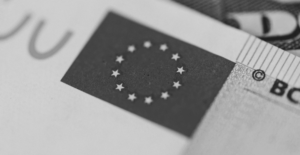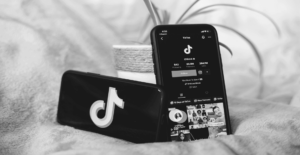More than 80% of the world’s counterfeit products are “Made in China”, and even more if you include Hong Kong. Paradoxically, it is the quest for authenticity that motivates today’s new Chinese consumers and guides them towards luxury brands and products.
In a country of 1.4 billion people, the reality is as complex as its geography. While a large part of the population (nearly 60%) still makes a living on $2 to $10 a day, the new Chinese consumers, who are rather young (20 to 35 years old), urban and educated, distinguish themselves from their parents by frequently buying online. Half of them are women and all of them now prioritize quality and authenticity over low cost. Henri Joli, an international fashion expert who now lives in Shanghai after 20 years with Jean-Paul Gaultier, explains it this way: “There are more and more Chinese businesswomen who don’t want to have the same outfit as their neighbors or even look like anyone else.”
Searching for authenticity between the counterfeit
Finding “the real thing“, the dreamed authentic product, can be a real quest for the Chinese (middle-class) consumers, especially in their own country where the markets (physical or digital) are flooded with counterfeit products. Also, to avoid these counterfeits, especially when it comes to food or pharmaceutical products, Chinese buyers have resorted for a few years to a process called “daigou” (in Mandarin: buying for someone). This practice consists of handing over a large sum of money to a trusted person, a “personal shopper” in charge of buying the desired goods abroad, in Europe or the United States, in exchange for a commission. This is a win-win situation for both the buyer, who pays less than in China (avoiding import taxes), and the commissionaire, who benefits from an additional income.
For emerging luxury brands that wish to develop their activities in China but have neither a location (lack of funds) nor the necessary authorizations, the “daigou” process is a real opportunity. It allows them to make themselves known across online platforms that young consumers regularly visit in order to be always at the cutting edge of fashion and among the first to discover and acquire new products.
EXPERT ADVICE
Fighting the spread of counterfeit products on Chinese platforms is becoming a real business challenge. Chinese luxury counterfeits tripled in the last ten years, posing serious questions for producers and consumers alike. Domestic consumer culture searches for authenticity, and China remains the largest market for luxury brands and the first buyer of “made in France” cosmetics.
This is the heart of the problem: authenticity is never guaranteed in China, for any product. For this reason, the monitoring of Chinese sales platforms and e-commerce sites is essential. The basic principle to fight effectively against the sale of counterfeit products, and more generally to control your distribution network on the Internet when you are a European company, is based on the implementation of an automated surveillance. This allows:
- the detection of fraudulent ads,
- the removal of these ads,
- the identification and notification of sellers in violation.
ARGOS, EBRAND’s anti-counterfeiting monitoring tool, detects suspicious ads. These are then analyzed by legal experts who confirm the counterfeit nature of the product offered before requesting its immediate removal from the platform. In addition, the tool identifies useful information about the offending sellers and thus contributes to the investigation, with a view to taking action.
Find out more about how ARGOS works, and discover new ways to connect your business with eager consumers.


